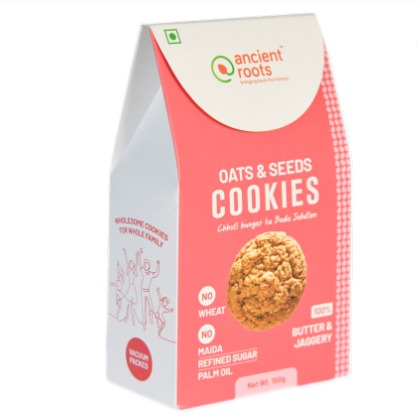Cutting back on carbs is the first thing someone does while beginning a weight loss journey. But, are you wondering if low carb diets really work?
Read this article and find out everything there is to know about low carb!

Let us begin with Low carb:
Most foods such as grains, fruits and vegetables with starch contains carbohydrates. A low carb diet on the other hand limits the amount of carbohydrates in your diet.
There are various types of low carb diets in existence. Carbohydrates normally have high protein and fat. Low carb diet has different types of restrictions and it also limits the amount of carbohydrates you can eat.
People mostly tend to go with low carb diet to lose their weight. But there are also other health benefits in a low carb diet. It is a fact that a low carb diet helps in reducing the danger of type 2 diabetes and metabolic syndrome.
It is also important that you consult a doctor before beginning a weight lose diet or a low carb diet. It might be a great risk if you have heart disease or diabetes.
Check out this low carb snacks in foodvez!
What are carbohydrates?
Basically, carbohydrates quantity is limited in a low carb diet. They are grouped into four categories, they are:
- Simple natural (Lactose and Fructose)
- Simple refined (Sugar)
- Complex natural (Grains or Beans)
- Complex refined (Flour)
Natural carbohydrates are mostly from:
- Nuts
- Fruits
- Legumes
- Seeds
- Vegetables
- Grains
Main energy is available to your body with the help of carbohydrates. Simple sugar are released in your blood when digestion takes place in your body.
A low carb diet therefore burns the excess fat in your body, leading to lose of weight.

What does carbohydrates do?
It is known that carbohydrates provides required fiber to your body. Some carbohydrates are digested slowly such as complex carbohydrates. They also have less effect on blood sugar when compared to refined carbohydrates.
Processed foods contains refined carbohydrates such as sugar or flour in it. Few foods that contain refined carbohydrates are pasta, white bread, candy, soft drinks, cookies and cake.
Reasons to follow a low carb diet
- The first and foremost reason to follow a low carb diet is to lose weight.
- Few people tend to take up low carb diet to change their eating routine.
- Some of them enjoy the carbohydrates in their food, which makes them to follow low carb diet.
Typical foods for a low-carb diet
As we are aware, a low-carbohydrate diet is the one that prioritises appropriate carbohydrate, fat, and protein sources may assist to reduce the risk of type 2 diabetes and heart disease. In fact, practically any diet that helps you lose weight can temporarily improve blood sugar and cholesterol levels.
A low-carb diet restricts grains, legumes, fruits, breads, sweets, pastas, starchy vegetables, and occasionally nuts and seeds. On the other hand, some low-carb diet plans allow for limited servings of fruits, vegetables, and whole grains. Protein and nonstarchy vegetables are the mainstays of a low-carbohydrate diet.
Carbohydrates are typically limited to 0.7 to 2 ounces (20 to 57 grammes) per day on a low-carb diet. These carbohydrate amounts provide between 80 and 240 calories. Some low-carb diets restrict carbs severely at first, then gradually increase the number of carbs allowed.
Carbohydrates should account for 45 to 65 per cent of total daily calories, according to the American Dietary Guidelines. If you ate 2,000 calories per day, carbohydrates would account for between 900 and 1,300 calories.
Risks in following a low-carb diet
- A severe reduction in carbohydrates can result in transient adverse effects such as:
- Constipation
- Headache
- Muscle twitches
- A rigorous carbohydrate restriction can force your body to break down fat into ketones for energy. This is known as ketosis. Side effects of ketosis include poor breath, headaches, weariness, and weakness.
It’s unclear what type of long-term health problems a low-carb diet could bring. Long-term carb restriction can lead to vitamin and mineral shortages, and also gastrointestinal problems.
Some health experts believe that consuming a lot of fat and protein from animals may increase your risk of heart disease and cancer.
Pay attention to the fats and proteins you choose if you adopt a low-carb diet. Limit saturated and trans fats in your diet, such as meat and high-fat dairy products, as they can raise your risk of heart disease.

Is low-carb a good choice for you?
If you want to lose weight quickly or prevent or improve metabolic syndrome, diabetes, high blood pressure, or heart disease, you should try a low-carb diet.
If you don’t like diets with rigorous dietary limits, this diet may appeal to you because of the variety it provides. You should also consider the kind of carbs you consume to identify where you may make improvements.
If you review your diet and discover that you lack non-starchy vegetables but consume a lot of added sugar, you may want to reduce your refined carbohydrate intake in favour of more vegetables.
Also, keep in mind that low-carb diets are deficient in key nutrients. Many high-carbohydrate foods are really healthy. Consider beans, fruits, and whole grains.

Is a low-carbohydrate diet sustainable?
Low-carb dieters may enjoy a temporary weight loss boost as compared to low-fat dieters. But the gain usually fades after a year or two. Eating more protein and fat instead of carbs may help you feel fuller for longer, allowing you to eat less.
Most studies have only lasted a few months. As a result, it’s unclear if a low-carbohydrate diet has long-term health hazards. Before beginning this or any other diet, consult your doctor; based on your needs, your doctor can propose the best healthy diet for you.

